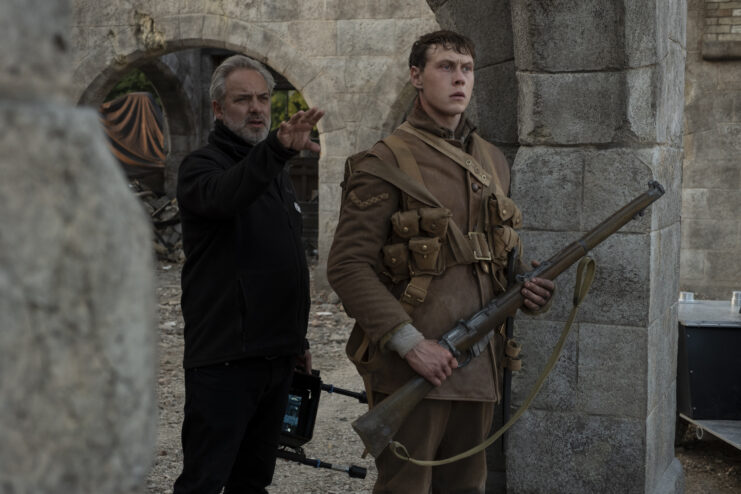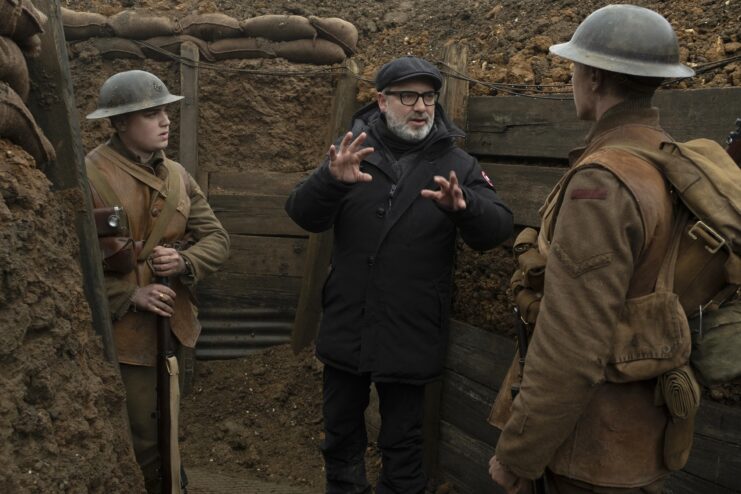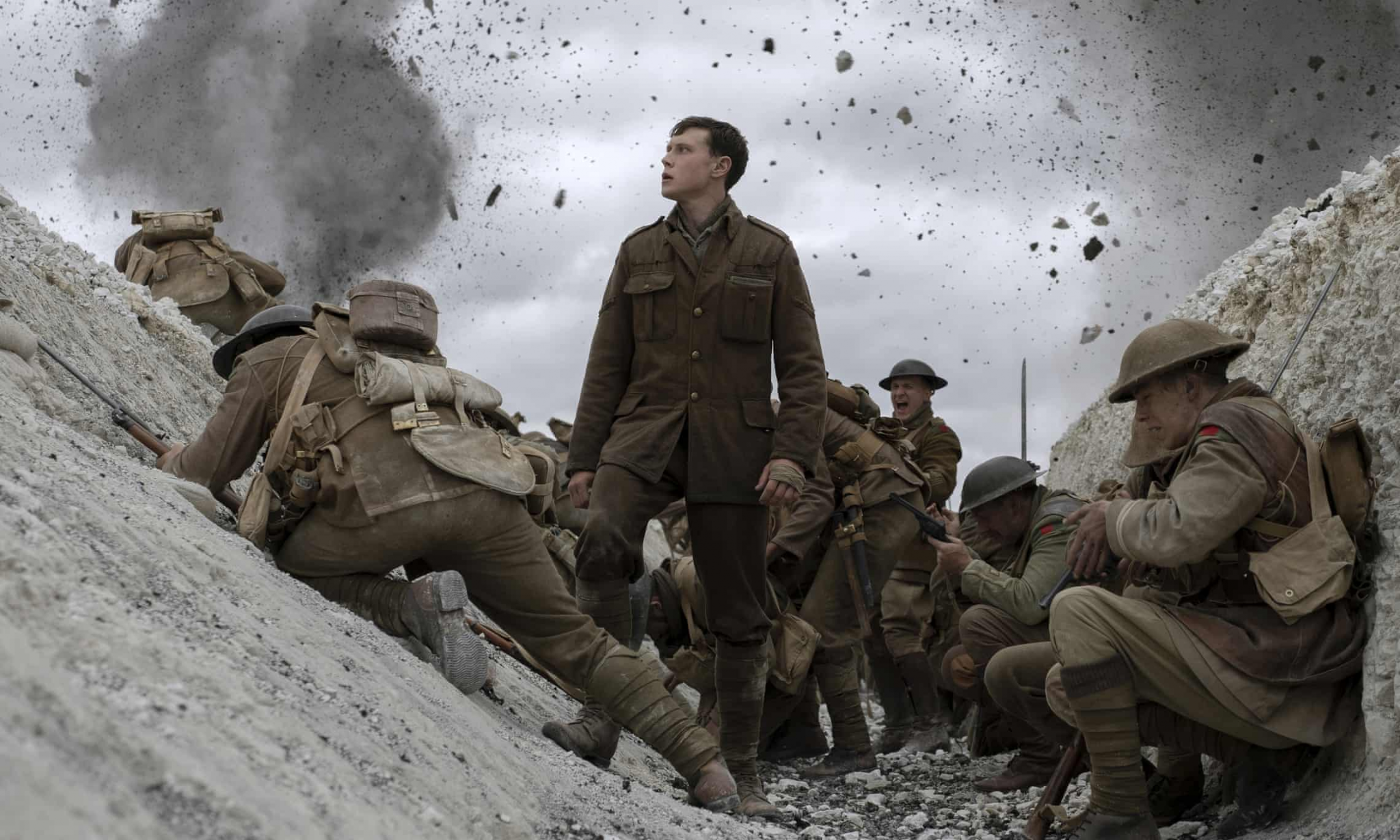When Sam Mendes was a little boy, he heard a story told by his Grandpa Alfred about his time in the trenches in World War One. It was a story of heroism and determination in the face of incredible odds. A story of two young British soldiers tasked with an impossible mission to deliver a warning message.
During the German retreat to the Hindenburg Line during Operation Alberich in the Spring of 1917, there were many skirmishes as the opposing sides tried to establish an advantage.

Ambushes and counterattacks were the currency of the day and Mendes film focuses on the chaotic energy of the time. Operation Alberich commenced on February 9th, 1917 with the German Army retreating forty kilometres to the new line of defence. It was shorter, designed to be held with fewer men so that reserves could be funnelled into other areas such as the Aisne front, soon to come under attack from the French in the Nivelle Offensive.
A controversial scorched earth policy was adopted with railway lines removed, water sources polluted, and trees felled. About 125,000 able bodied French men were deported from the area, while women, children, the sick and the elderly were left behind for the Allies to deal with.
Fields were mined and booby-traps set after which, the German Army gifted more territory than the Allies had managed to win since the start of the war. While it was regarded as a shrewd move on the part of the Germans, it left the Allies plans for the Spring of 1917 in complete disarray.

The first they knew of the new tactic was when a forward British patrol found abandoned German positions near the town of Serre. Unprepared for such an eventuality the British were unable to press home any advantage and the Germans completed their withdrawal in four days, although it was not entirely without incident.
Sam Mendes’ two soldiers attempt to halt a British offensive move into a trap set by the retreating German Army, but time is short, and the film follows their attempt minute by minute in a single shot from start to finish. Not all went to plan and such a thing as a faulty lighter caused major problems for the film. Sir Sam refers to it as “lighter-gate” – a scene where a faulty prop meant having to re-shoot an entire sequence.
“Andrew, in his only scene, made more mistakes than anyone else,” the director affectionately jokes, referring to Fleabag star Andrew Scott, who was required to light a cigarette during his brief appearance in the film.

“Never smoke, ever,” Scott picks up. “On anything – on stage, on screen – never use a cigarette lighter.” Sam Mendes expands: “You can have seven minutes of magic, and then if someone trips, or a lighter doesn’t work, or if an actor forgets half a line, it means none of it is useable and you have to start again.”
Scott felt bad given the fact that he plays a very small part in the film: “You have to work alongside the camera team and the extras but the great challenge of it is you don’t want to mess it up, because you’re only in it for five minutes, you don’t want to be that guy.” Mendes said he wanted to, ‘lock the audience together with the central characters, creating the feeling that they can’t get out,’
We follow Lance Corporals Schofield and Blake as they cross enemy lines, travelling with them every step of the way with no sudden changes in audience point of view, no cutting from one shot to another. Scenes change only as and when our protagonists move from one area to another with the director using a single floating shot, giving the story urgency as we follow it in real time.
He said of the previews that, ‘you could feel that visceral sense in the audience of being connected… something to do with the one shot, and the fact you can feel the time passing,’ Roger Deakins, cinematographer remembers when he first saw the script that it had a note on the front that the movie was envisioned as a single shot. At first, he thought it had to be a mistake, and it wasn’t until rehearsals were over and shooting started that the project began to come together.
The movie was shot over sixty-five days with the longest take running to nine minutes, with the biggest issues being the changing weather and faulty props. But the ambition of the Director has already started to pay off with nine Bafta nominations and a Golden Globe wins for Best Picture and Best Director.
Mendes won acclaim for American Beauty and was credited with bringing new energy to the ailing British James Bond spy series making cinematic hits Skyfall and Spectre. His ambition as a film maker seems undiminished. One can only imagine what he has planned next.
